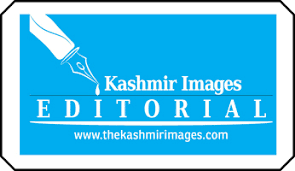There was a time when journalism in Kashmir was a sacred pursuit—quiet, deliberate, and brave. It did not arrive with a mic and a selfie stick. It arrived with notebooks stained by rain, shoes worn thin by truth’s long road and hearts heavy with the weight of stories that mattered. It stood at the edge of curfews and crackdowns, asking questions, no one dared to ask. It was not a performance. It was a promise.
Today, that promise is fraying. The Valley, long a crucible of conflict and resilience, now finds its media landscape cluttered with impersonators; individuals who wear the mask of journalism but not its soul. They flash forged IDs, chase controversy for clicks and wield cameras like weapons. They do not report; they intrude. They do not inform; they inflame. And in doing so, they tarnish the very profession they claim to represent.
The recent crackdown on unverified media operatives is not an attack on press freedom rather it is a defense of its dignity. It is a line drawn in the sand between those who earn the byline and those who hijack it. Between those who serve the public and those who serve themselves.
Let us be clear: journalism is not a shortcut to power. It is a long, winding path of accountability, ethics and earned trust. It demands more than a phone and a platform. It demands context, clarity and courage. It demands the humility to listen and the integrity to tell the truth, even when it’s inconvenient.
In Kashmir, where every word carries weight and every silence speaks volumes, journalism must rise above noise. It must reclaim its role, not as a megaphone for manipulation, but as a mirror to society. It must return to the desk, to the field, to the quiet labour of fact-checking and rewriting. It must remember its roots.
This is not nostalgia. It is a necessity. The erosion of editorial standards is not just a professional concern—it is a civic crisis. When misinformation masquerades as news, when intimidation replaces inquiry and when visibility trumps veracity, the public loses its compass. The role of journalism is not to chase spectacle but to illuminate substance. It is not to provoke attention but to provoke thought. It is not to harass power for personal gain but to hold it accountable for public good.
Let this be a moment of reckoning. Let it be a call to every newsroom, every editor, every aspiring reporter: to rise, to refine, to remember. Journalism is not dead. But it is wounded. And it is ours to heal.
Not with outrage. But with excellence; not with noise but with nuance; not with shortcuts, but with stories that endure.
Let the mic return to those who carry it with care. Let the byline be earned again.
Let journalism in Kashmir be what it once was—a quiet force of truth, a witness to history and a guardian of dignity. Let it be the voice that listens before it speaks, that questions before it claims, and that serves before it shines. Because when journalism forgets its purpose, society forgets its truth. And truth, in Kashmir, is too precious to lose.


